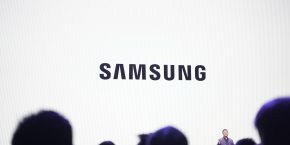
When Samsung released the DeX solution alongside the Samsung Galaxy S8 and S8+ it seemed like a big stretch. Would people would want to tether their Android phone and create a pseudo-desktop experience that relied solely on the mobile OS? The announcement of Linux on DeX and subsequent beta for this might finally give the hardware a new lease of life.
One big problem with DeX was always that Android was never really meant to be used with a mouse and keyboard. I was given the DeX docking station as a pre-order gift with the Samsung Galaxy Note 8, but genuinely never opened the package as I felt that I had no use for it.
Whilst I’m not a developer or even a user of any Linux distro, I do think that having a proper desktop environment might open up a huge number of use-cases for those that want to have access to a real Linux experience on a device. Remember the failed IndieGoGo from Canonical way back in 2013? They tried — and failed — to convince enough people that the Ubuntu Edge was a viable product.
Now, Samsung is trying to do something similar, to convince us that DeX can bridge that mobile-to-desktop gap, but (at present) solely with the help of Canonical. That means that at the minute you’ll only be able to install a tailored version of Ubuntu (Ubuntu 16.04 LTS provided by Canonical) for your Samsung Galaxy Note 9 or Samsung Galaxy Tab S4. There is no word on if or when older devices might get the functionality.
Linux for DeX setup
I luckily have the proper DeX station complete with input ports for USB peripherals and charging dock capabilities. That meant that set up was a piece of cake, I just plugged in my wireless mouse and wired keyboard, the HDMI port and USB Type-C power cable and I was into the Android DeX desktop.
Now from there, all it takes is to launch the Linux for DeX application to begin installing the single Ubuntu build that is compatible with your Samsung device. It does take a little while even on a superfast connection as the installation once unpacked is just a tad over 10GB.
Once installed and unpacked, it’s as easy as running the Linux on DeX application, pointing the application to the right folder and then running your Ubuntu build. This will launch directly into the familiar Ubuntu desktop environment that many will know and enjoy. Personally, I’m not as familiar with Ubuntu as I would like to be.
How well does it work?
It ran smooth and browsing the web in the full version of Firefox seemed to be absolutely no problem. It’s a shame that Steam isn’t fully supported as it would have been great to install a few Linux compatible games and have a proper PC gaming option in your pocket — with a few additions.
Of course, some Linux apps may not work for DeX, specifically those that require a traditional Intel or AMD processor instead of the ARM processors found in Galaxy devices. So there are going to be some limitations to how you can use this Linux desktop. As someone who doesn’t have a need to code on the go, this might be lost on me, but I can see that this is a major benefit to developers that need a mobile development environment. I can see that exact use-case being one of the areas targeted by Samsung if it makes it out of beta.
I can definitely see this being a more useful tool on the Samsung Galaxy Tab S4 devices and future Samsung tablets. That said, there may be more support for the system with the recently showcased foldable devices, most notably the Samsung Galaxy F. Either way, could you see yourself wanting, needing or using Linux on your Android smartphone — even if it’s not a fully mobile version akin to a laptop? Let us know in the comments section down there.
How to install Linux on DeX
- Sign up for the private Linux on DeX beta program here.
- Ensure you have at least 8GB of storage remaining on your Note 9 or Tab S4
- Once you are accepted to the Linux on DeX beta program you will receive a link to download the Linux on DeX application on your Samsung Galaxy Note 9 or Galaxy Tab S4 device.
- Open the application and download the official Ubuntu build for Samsung DeX devices to your local storage.
- Once completed you can assign storage limits before launching directly into your Ubuntu desktop.
What can you do with Linux on DeX?
- Download your source code from Git repository and run and maintain your code base
- Manage and monitor your server using server CLI
- Create C/C++/Java projects using your favorite IDE
- Enjoy a true desktop PC experience using an Android-powered device
Where can you get DeX?
USA
- Get the Samsung DeX docking station for $65.99 shipped
- Get the Samsung DeX Pad for $69.99 shipped
- Get the Samsung DeX cable for $41.99 shipped
UK
- Get the Samsung DeX docking station for £46.99 shipped
- Get the Samsung DeX Pad for £79.38 shipped
- Get the Samsung DeX cable for £29.99 shipped
More on Samsung:
- Samsung foldable smartphone will allegedly be released in March 2019 w/ eye-watering price
- Friday 5: Best Samsung Galaxy Note 9 screen protectors [Video]
- Samsung Galaxy S10 could ditch iris sensor, will use in-display ‘ultrasonic’ fingerprint reader
FTC: We use income earning auto affiliate links. More.



Comments